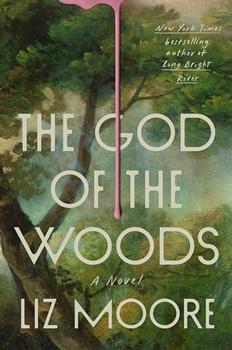(9/24/2014)
From and ARC kindly provided by Allen&Unwin and TheReadingRoom
Leaving Time is the twenty-first novel by popular American author, Jodi Picoult. Alice Metcalf is a scientist whose field of study is grief in elephants. Alice has been missing for ten years. Her thirteen-year-old daughter, Jenna is determined she will find her mother: after all, Alice would never have voluntarily left Jenna, of that she is certain. Her grandmother is reluctant to discuss it and her dad, Thomas Metcalf is now in a catatonic state in a mental institution. Jenna has done her research into what happened at the New England Elephant Sanctuary, which was set up by her dad, on the night her mother went missing. She has used the internet exhaustively and pored over her mother’s journals. She has saved her babysitting money and uses it to engage a psychic, Serenity Jones, once famous but now disgraced: Serenity is within her budget. She also tracks down Virgil Stanhope, an ex-cop turned PI who was called to the Sanctuary on the night in question. Neither of them, however, is initially willing to help, but before long, guilt, intrigue and a bit of paranormal persuasion ensure their involvement. Serenity warns Jenna that she may not like what she discovers. Of the possible reasons that she has not returned there is the ultimate one: that Alice has died.
As usual, Picoult employs several different narrators to tell the tale. Her characters are well-rounded and appealing: Jenna is a smart, sassy and tenacious teen; Alice is much more human and flawed than the picture Jenna first paints of her; Serenity is a fiery character who once had a genuine psychic gift; Virgil, an alcoholic PI whose conscience won’t let up. Their dialogue is quick and clever: the banter between Serenity and Virgil is delightfully funny, as is the interaction between Serenity and her computer tech. It is impossible not to chuckle and readers will often find themselves laughing out loud, but Picoult also gives the reader many thoughtful moments and a few to cause a lump in the throat. The plot is original; the intrigue makes this a novel that is difficult to put down; and Picoult includes a perfect twist that even the most astute readers are unlikely to see coming.
It is quite apparent that, once again, Picoult has done extensive research, and not just on elephants: this novel explores grief (both elephant and human), the nature of memory, psychics and paranormal phenomena, and the bond between a mother and child; it also touches on Post Traumatic Stress Disorder, dreams, bipolar disorder, and missing persons. This wealth of information is conveyed in easy-to-assimilate form that will, none-the-less keep the reader thinking. The comparison between psychic and detective skills is an interesting one, and thanks to the internet, instructions for folding an origami elephant are easy to find (www.origami-instructions.com/origami-elephant.html). While it is not necessary to read the two short stories (Where There’s Smoke and Larger Than Life) that are prequel to this novel, readers who do so will be glad of the extra information they provide. Prospective readers may wonder if Picoult can continue to maintain her usual high standard: with Leaving Time, they can rest assured. This is, once again, a brilliant read.



